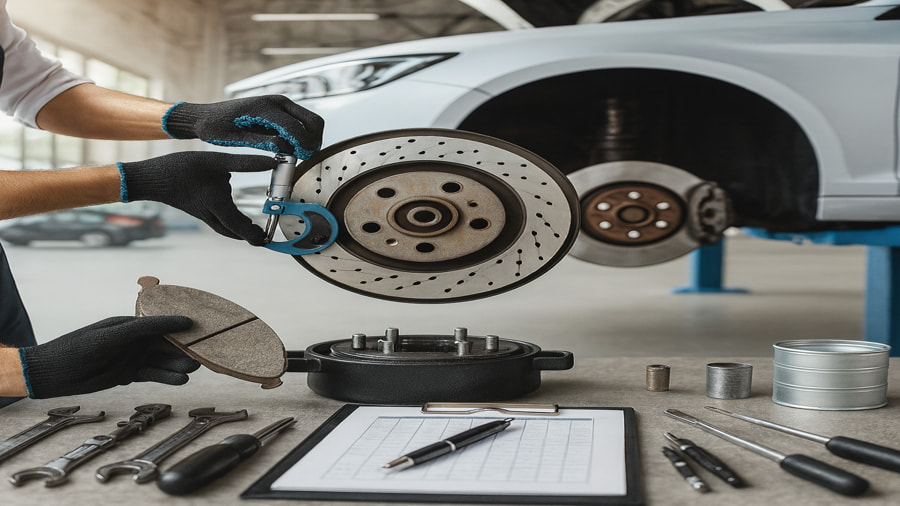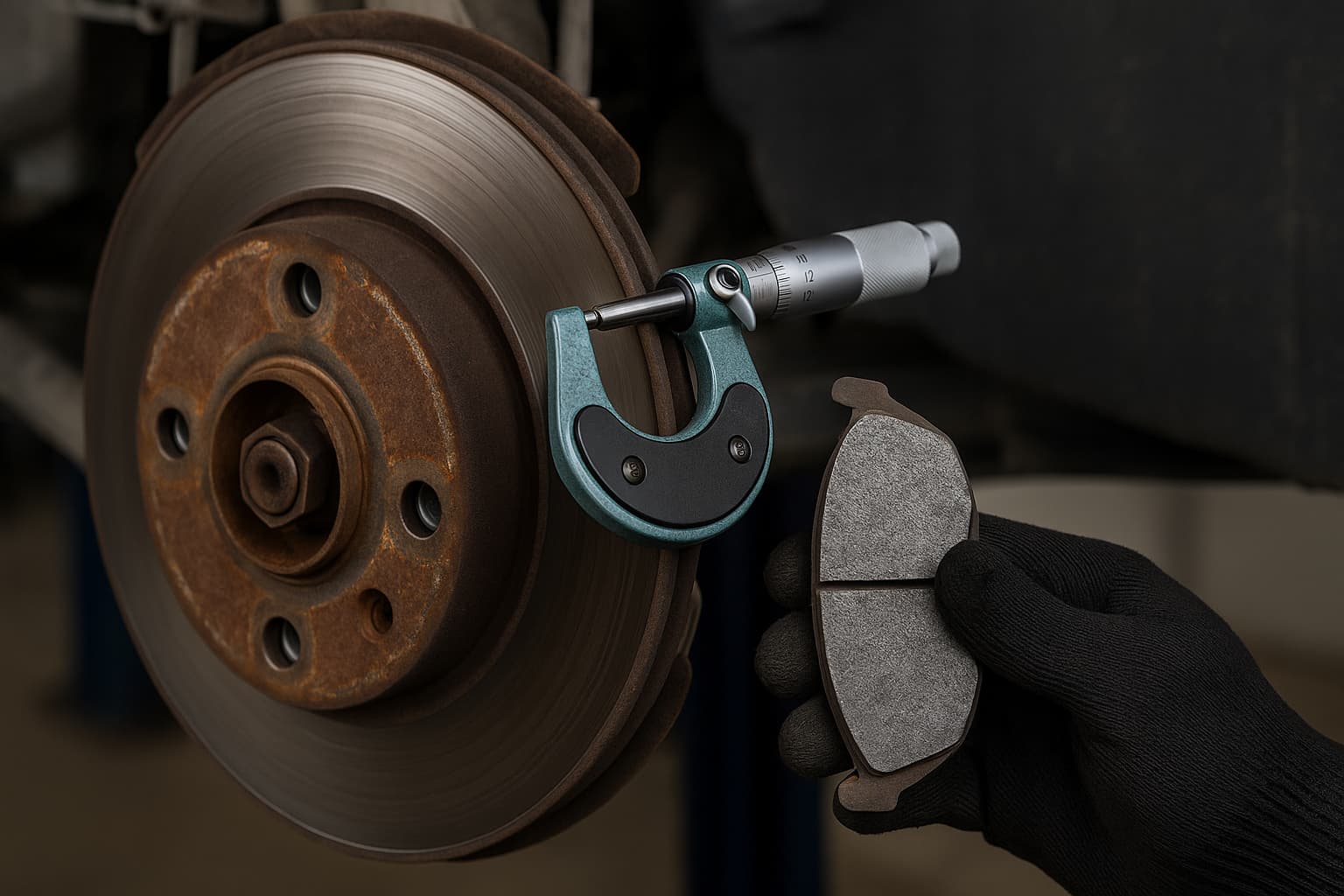Introduction
Your brakes are the most important safety system on your vehicle. When they wear or fail, stopping distances increase and the car can pull or vibrate under braking. Below we cover five clear warning signs, what usually causes them, and how our team in Al Maabilah, Muscat performs a proper brake inspection before recommending parts.
Top 5 Warning Signs You Need Brake Service
1) Squealing or scraping noises
High-pitched squeal often means the pad wear indicator is touching the rotor. A harsh scraping/grinding sound suggests pads are worn to metal—stop driving and inspect immediately to avoid rotor damage.
2) Vibration or steering wheel shake
Pulsation through the pedal or steering wheel when braking usually indicates rotor runout/warp or uneven pad deposits. Heat spots or stuck caliper pins can also cause this.
3) Soft or spongy brake pedal
A pedal that sinks or feels soft can be due to air in the hydraulic system, aged brake fluid, a failing master cylinder, or flexible hose issues. Bleeding and fluid replacement may be required.
4) Car pulls to one side
Uneven braking from seized calipers, contaminated pads, or different friction materials can pull the vehicle left or right. We compare pad thickness and caliper slide movement side-to-side.
5) Longer stopping distance or warning light
ABS or brake warning lamps, low fluid level, or noticeably longer stops signal worn pads, fluid leak, or hydraulic faults. Address these quickly to keep the system safe.
Common Causes
- Normal wear: Pads thin over time; rotors lose thickness.
- Heat and driving habits: Mountain routes, towing, or hard braking accelerate wear/warp.
- Seized slide pins or calipers: Causes uneven pad wear and pulling.
- Old brake fluid: Moisture lowers boiling point; pedal can feel soft after heavy braking.
How We Inspect Brakes at Al Alawi Auto
- Road test: Confirm noise, vibration, pull, and pedal feel.
- Visual check: Pad thickness, rotor condition, leaks, hoses, and caliper movement.
- Measurements: Rotor runout and thickness vs spec; pad thickness recorded.
- Hydraulic/ABS scan: Read fault codes and live data if warning lights are on.
- Report & estimate: We provide a written estimate with parts options (genuine or OEM-equivalent) and warranty details.

FAQs
Q: How often should I change brake fluid?
A: Typically every 2 years, or sooner in humid climates. Moisture in fluid reduces braking performance under heat.
Q: Can I replace pads only?
A: If rotors are within thickness and runout specs, pads alone may be fine. Otherwise, new rotors prevent noise and vibration.
Q: Do you offer warranty?
A: Yes—eligible parts carry manufacturer warranty, plus our limited workmanship warranty printed on your invoice.
Conclusion & Next Steps
If you hear noises, feel vibration, or the pedal seems soft, book a quick brake inspection. We’ll measure everything to spec and recommend the safest, most cost-effective fix. Tap WhatsApp on our site for a same-day slot in Al Maabilah, Muscat.
